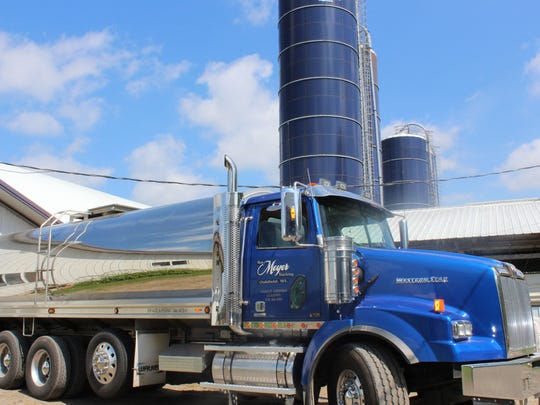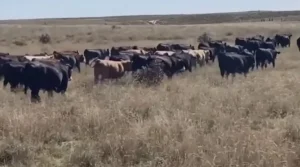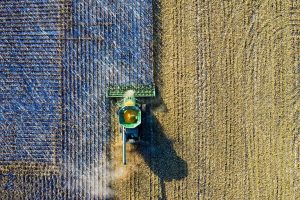
Dairy farmers — producers of a perishable product — are particularly concerned as rumors of potential dairy plant closures and the specter of milk dumping have become possibilities.
Dairy farmers have turned to social media to vent and to ask others what they have heard about potential milk dumping brought on by oversupply issues. Some commented that with grocery store dairy cases often empty and frozen pizzas cleaned out of the stores, it would seem like a bad time to curtail dairy production, especially since “the girls” still produce milk every day.
However, the farmers note that if one worker gets sick in a dairy processing plant it’s likely that plant would have to shut down for some period of time, meaning milk would have to be diverted elsewhere or dumped. Some processors are taking employees’ temperatures at the door to assure no one has a fever — one of the hallmarks of this illness.
One farmer posted that he had talked to his AMPI field man who told him there is no chance they are closing their plants. Others made the same comment. Many said Land O’ Lakes had communicated that it might happen at their plants.
Several dairy farmers commented that it’s ironic that Amazon plans to hire an additional 100,000 workers because so many people are ordering goods online, but dairy farmers face the threat that their milk won’t be picked up for processing. “Maybe we’ll have to get Amazon to haul our milk,” was one comment. Some farmers said their processors told them that it would be only a last resort, worst-case scenario for milk to be left on the farm.
Advice from one farmer to another was to check their insurance to determine if dumped milk would be covered in the case of haulers and processors declining to pick up milk at the farm.
Others commented with disdain for their dairy promotion programs. Whole milk and butter are sold out in the stores, commented several farmers, but promotions for those dairy products are slim to none. “Everyone wants the whole!” said one farmer.
(Farmers in the UK and Canada commented that they are not allowed to be anywhere near the milk house when the hauler is there to avoid contact, and said they need to disinfect the area for the hauler.)
Next steps for dairy
In a letter to the U.S. Department of Agriculture on March 24 the National Milk Producers Federation (NMPF), the largest organization of U.S. dairy farmers, outlined what agency actions could best aid dairy farmers as they brace for further public-health and market impacts of the pandemic.
“Over the last five weeks, the [USDA’s] estimate of 2020 milk prices reflect a drop of about $2.85 billion at the farm level,” wrote NMPF President and CEO Jim Mulhern in the letter sent to Agriculture Secretary Sonny Perdue. “Further drops are possible as the impact of the COVID-19 outbreak spreads. The demand shock experienced by our entire economy is turning what initially looked to dairy farmers like the first decent year in the last five into one of potentially widespread economic devastation.”
As the outbreak spread throughout the country, the Department of Homeland Security has reaffirmed agriculture and the dairy farming sector as “critical infrastructure” — a part of national security. Those farmers, said Mulhern, expect to face price declines and unstable demand over the next several months, as joblessness rises, schools remain closed and farm and dairy processing operations face unprecedented logistical challenges.
The federal government has already moved to approve food purchases and offer flexibility in transportation rules. In its letter NMPF asked to see:
Additional dairy product purchases for charitable distribution, which will help Americans in need during what may be a period of very high demand at food banks;
Compensation for milk disposal, a real possibility as logistical challenges on the farm and at manufacturing plants may create severe disruptions; and
Re-opening signup for participation in the Dairy Margin Coverage (DMC) program, the main safety net for dairy farmers, especially small and medium-sized producers. DMC participation declined in 2020 because of forecasts for higher prices that have been radically revised in light of coronavirus.
Agriculture priorities
A few days earlier, officials with the American Farm Bureau Federation held a teleconference to update reporters on the pandemic response and its impact on agriculture. The organization’s president Zippy Duvall said, “We’re real proud to see agriculture pulling together in these uncertain times.”
He said he’d been on the phone with Secretary Perdue and the White House, talking about the issues farmers are likely to face as schools and restaurants closed and consumers have flocked to grocery stores, often overwhelming supplies.
“We appreciate those people so much who have continued to stock shelves and those trucking food to stores and the health care providers,” he said.
Asked about the pandemic’s effect on Phase 1 of the trade deal between China and the United States, Duvall said he knew that it was going to take a while to crank up the trade deal and now the corona virus outbreak has gotten in the way of that.
But even as the effect of the pandemic spread across the globe, some progress has been made. The Farm Bureau’s chief economist John Newton said that China has now approved 500 U.S. beef plants for meat exports to China.
Duvall said that state Farm Bureau chapters are concerned about having enough labor to produce the food on their farms and have asked AFBF to push for more workers under the H2A visa program. They have been told that there will be waivers on visas, prioritized for returning workers who are in the same visa category. Over 90 percent of the workers under that visa program came from Mexico in 2018, according to Farm Bureau officials.
“This is one problem we’ve got to fix or everyone will feel it,” Duvall said. “Americans just don’t want to do this type of work anymore.”
Newton commented that Morgan Chase had already predicted GDP growth of negative 14% for the U.S. economy.
Dale Moore, AFBF’s executive vice president, said the organization continues to register the concerns of agriculture with members of Congress, even though they can’t quickly give them a number to quantify the losses agriculture expects to have from this economic downturn. “We look forward to meeting with them when the impacts become more clear,” he added.
Duvall said they have been expressing concern to Secretary Perdue about operating loans for farmers and about the disruption to supply chains in terms of milk hauling and transportation of other agricultural goods.
Duvall noted that farmers have experienced economic stress for eight years. “Farm income is 50% of what it was eight years ago. They have also experienced extreme weather conditions and trade wars. Stress is at a really high level for our farmers.”
He feels that there’s better awareness of mental health on the farm and hopes that farmers continue to access programs that “help farmers realize it’s okay for them to talk to someone.”
The Farm Bureau officials said that USDA has assured them there will be enough meat inspectors at work to keep meat processing plants running. “Secretary Perdue has told us that the USDA is in the service business and assured us that they would continue to do that work, without offering specifics,” Duvall said.
Related: Where’s the beef? Producers are working hard to get more to consumers as shelves empty.
Newton commented that since mid-January many agricultural commodities have plummeted in price — cattle are down 28%, Class IV milk (which goes into powder production mostly for exports) has dropped 26% and hogs are down 20%.

























